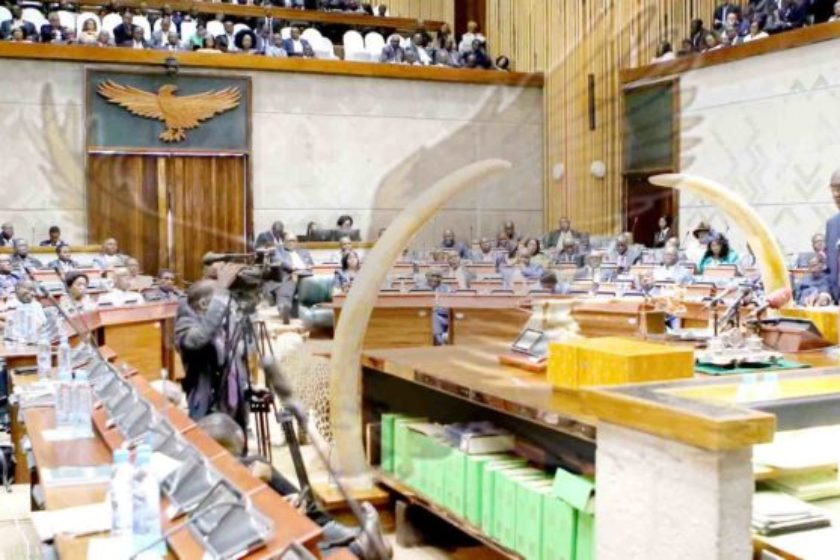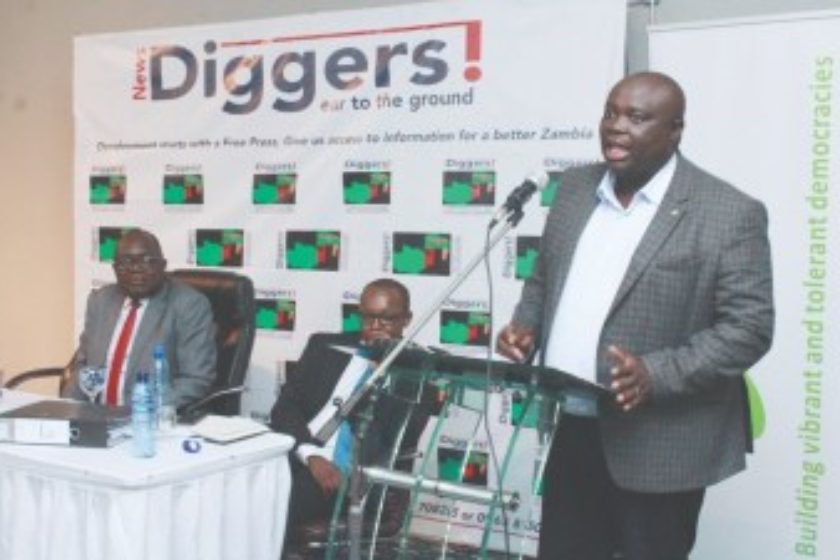ON SATURDAY, Minister of Finance Bwalya Ng’andu confirmed that Government has started re-engaging the International Monetary Fund (IMF) for a possible bailout package. He also confirmed that the IMF has agreed to bring back a resident representative to Zambia to help in the process of engagement. The previous envoy, Alfredo Baldini, was recalled at the end of August last year after protracted negotiations over a failed bailout.
Admittedly, the IMF and the World Bank are not the most popular institutions in Zambia. In fact, when the negotiations for a bailout collapsed, there are some among our people who welcomed the news.
These are the people who cite the IMF’s Structural Adjustment Programme (SAP) as having brought misery on the country. They also blame the IMF and World Bank for Zambia’s past debt which eventually led to foreign debt forgiveness in 2005. Oxfam, in its 1996 report titled Multilateral Debt: The Human Costs, accused the World Bank and the IMF of creating a “bizarre financial circus in which more and more aid was being recycled in the form of debt repayment while the debt stock was increasing” for poor countries like Zambia.
The debt forgiveness came at a cost. The country had to attain certain benchmarks as one of the Highly Indebted Poor Countries (HIPC) to qualify for debt forgiveness.
One of these conditions required privatising certain State-owned enterprises. A number of parastatals were privatised, including the units or divisions under the Zambia Consolidated Copper Mines (ZCCM), which was the goose laying the golden egg for the country. Most of the mining deals turned out to be disastrous. In fact, the degeneration of life on the Copperbelt, where most of the ZCCM units were located, was blamed on the privatisation of the mines.
Most of the mines were privatised under the first administration of the Movement for Multi-Party Democracy (MMD) of President Frederick Chiluba. However, HIPC was only attained in 2005, which was towards the end of his successor Levy Mwanawasa’s first term as President. Knowing how opposed the Zambian public was to further privatisation of the remaining parastatals, notably Zesco, Zamtel and Zanaco, Mr Mwanawasa sought a compromise with the IMF. In place of privatisation, he proposed commercialisation, which the IMF thankfully accepted. To date, Zesco remains a symbol of the country’s resistance to the IMF policies which some members of the public believe have been disastrous for the country’s socio-economic life.
In fact, this is the reason why some celebrated the news of the failed IMF bailout to Zambia because they thought the Bretton Woods institution will insist on the privatisation of Zesco or an astronomic hike in electricity tariffs.
You can, therefore, understand why the IMF is not wholly popular.
However, we need to understand the role of the IMF. This is a specialised agency under the United Nations which provides policy advice to countries in economic difficulties. It also helps to achieve macro-economic stability. With its own governing structure, it also provides routine economic surveillance of its member countries. In fact, it is the first institution that multinationals, investors and indeed donors rely on when it comes to assessing the economic performance of a country.
We know what the IMF’s position on Zambia’s debt is; it has expressed deep concern on public debt, which it believes is the main cause of the deterioration of the country’s economy. It believes that the debt, if not well-managed, will put the country in debt distress.
This is why engagement with the IMF is crucial.
Our external debt stood at US$10.23 as at June this year, while domestic debt was at K60.3 billion. In his budget address, Dr Ng’andu said as a key strategy to stimulate economic activity, he has increased the allocation towards dismantling of arrears to K2.3 billion in 2020 from K437 million in 2019. Further, Government will reduce borrowing from the domestic market to 1.1 percent of GDP from 1.4 percent of gross domestic product (GDP) in 2019.
While this is welcome, we also need to worry, as a country, about the external debt, whose interest payments have been escalating, causing a switch in expenditure from social protection while triggering accumulation of domestic arrears.
Why is the IMF bailout crucial? IMF loans are normally interest-free or low interest financing. Experts say the nation is currently entitled to a quota of US$1.3 billion as IMF. They believe that with a standby bailout package, Zambia can pay off the full amount of the US$750 million in 2022 and then also another US$562 of the US$1 billion Eurobonds in 2024. In the 2020 budget, Dr Ng’andu has allocated K636.0 towards redemption of the Eurobond.
Simply put, an IMF bailout will be a confidence vote for the country and will help in its economic growth recovery efforts.
However, having supported an IMF bailout, we do not believe that that alone will solve the country’s debt problem. We need to continue pursuing other avenues, including tight fiscal policies.










